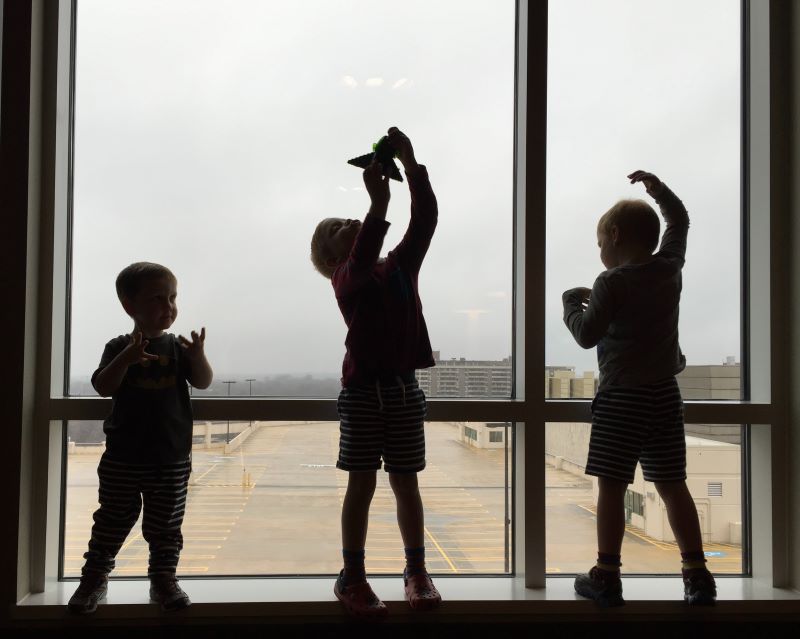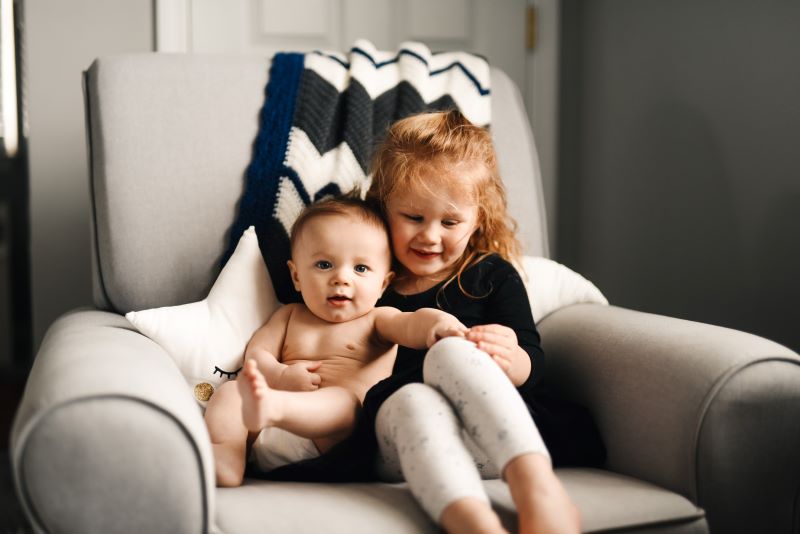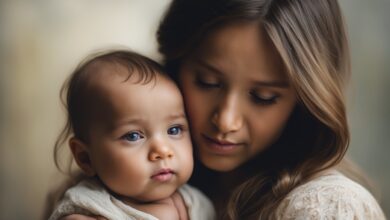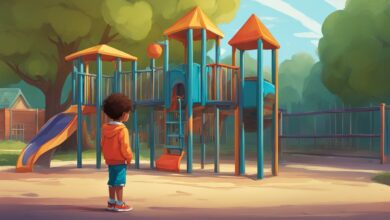
Would it be a good idea for you to think often about birth request? Does the request wherein your children were conceived truly have that a very remarkable effect on their character? The birth request banter has been a hotly debated issue for a really long time, we actually don’t have strong responses.
In our family, birth request has it spot on in certain viewpoints. I’m a commonplace firstborn, a restless over-achiever who detests causing problems or disheartening individuals. My better half is the quintessential center kid who is accommodating and maintains order. Our firstborn is a stickler rule-devotee, and our most youthful is magnetic and cordial.
Yet, that is not the entire story. Our firstborn is imaginative, bird-brained, and doesn’t have the objective arranged drive that birth request hypothesis says firstborns ought to have. Our most youthful is accommodating, sympathetic, and free, as opposed to the ruined and self centered most youthful youngster that birth request hypothesis says we ought to have.
All in all, what makes my better half and I not the same as our children? For what reason would we say we are the perfect examples for birth request hypothesis and not them?
Perhaps we are raising them uniquely in contrast to how we were raised. Maybe they have more grounded qualities than we understood. Or on the other hand it very well may be a blend of their characters connecting with us and the conditions they think of themselves as in.
The Science of Birth Order Theory

Alfred Adler, a 20th-century psychologist, suggested that birth order affects our personalities and life outcomes. He believed children were born into the same family but had different experiences. I don’t know about you, but I had a very different family experience from my sister’s, which is obvious when we reminisce. Her view of certain events is completely different from mine. Also, how she experienced them varies greatly from my own interpretations.
Despite Adler’s theory, he also believed that birth order differences could have less effect on kids if their families became more democratic and cooperative. This is a juicy fact that we will dive into later when we look at parenting styles and how they shape childhood.
Frank J. Sulloway is another psychologist who vouched for the importance of birth order. He believed parents had an indirect role regarding birth order and personality. Instead, he theorized that birth order was important because it influenced the amount of competition siblings experienced and that competition was a crucial factor in personality traits.
Another theory is Parental Feedback. This idea suggests that parents adjust their parenting style as they have more children. The firstborn is an experiment fraught with stress and uncertainty, but as they have more kids, they become more comfortable and less anxious.
All three of these theories sound plausible, which is why birth order is such a complex topic.
Controversial Research
There are numerous factors that make a research study reliable. Unfortunately, theories about birth order are tricky to test. Birth order theory critics have found inconsistencies in how studies were conducted, making the findings less generalizable to large groups.
The American Psychological Association states that there is no strong research to support the idea that birth order directly affects personality. Instead, it may be one variable in personality, just like parental discipline, sibling interaction, and genetic and hormonal makeup.
Let’s look at two studies to demonstrate the contrasting views on the effect of birth order. The first is a 2019 study with 9,354 participants that found no association between birth order and mental health in adulthood. The other is a 2021 study of 4,290 9-10-year-olds that found that youngest children experienced the lowest rate of mental health challenges, while middle children had the lowest happiness score.
These studies show that birth order could play a part in development but that it may not have long-lasting effects. There are numerous studies like these two with mixed results. What most people can agree on is that personality is shaped by genetics and the environment.
Nature vs. Nurture strikes again!
Birth Order Characteristics
Regardless of the iffy research, there is no denying that certain birth orders are characterized by specific traits. Now, I’m not saying that they are set in stone. But the oldest children (oldest daughters in particular) often have similar experiences, and many middle children will admit to feeling lost in the crowd.

First Born Kids
Firstborns are our trial run. It sounds terrible, but none of us know what we’re doing when we first become parents. Those first kids are built differently because we have to take a fake-it-till-you-make-it approach with them.
Here are some of the common traits of firstborn kids:
- Goal-oriented
- Perfectionists
- Anxious
- Rule-followers
- High achievers
- Nurturing
- Fixers
New parents have the time and energy to devote to their firstborns. Routines are easier, and you may find that your firstborn thrives with structure and organization. In fact, many firstborns are drawn to structured occupations like accountants and lawyers.
You may have high expectations of your child, causing them to strive to make you happy and proud. Firstborns are also natural leaders because they take on the responsibility of caring for younger siblings.
Famous Firstborns: Richard Branson, Winston Churchill, Clint Eastwood, Beyonce, Einstein, Oprah
Middle Children
Middle children come in all forms, from laid back to rebellious. They are often the mediators, constantly keeping the peace between older and younger siblings.
Here are some common traits of middle kids:
- Loyal
- Agreeable
- Introspective
- Creative
- Adaptable
- Generous
- Independent
Your middle child may be the “easy one.” The child who goes with the flow and is always up for new experiences.
They don’t have the same pressure that firstborns experience, and they get to enjoy a more relaxed version of you. The second or third time around, you aren’t worried about every poop (or lack thereof), every milestone, and leaving them to sleep while you take a shower.
Middle kids have excellent negotiation skills because they often get caught between older and younger siblings. Sometimes, though, constantly having to vie for attention can take its toll, and middle kids may rebel as they try to establish their own identity.
Famous Middle kids: Nelson Mandela, Charles Darwin, Bill Gates, Madonna, Princess Diana
The “Baby”
Ah, the “baby” of the family. Youngest kids are often extroverted because they are used to attention. They can also be open, friendly, and always good for a laugh.
Here are some common traits of youngest kids:
- Easy going
- Charismatic
- Dependent
- Manipulative
- Spoiled
- Self-centered
Youngest kids are often doted on by the whole family. Firstborns take responsibility for them, and middle kids help keep the peace when they irritate the older ones.
The “babies” of the family are funny, carefree, and creative. But, they can be manipulative and selfish because they are used to getting their way.
Famous Youngest Kids: Joan of Arc, Gandhi, Harry Styles, Jim Carrey
Only Children
Only kids often have a similar experience as firstborn kids because they are the guinea pigs. Unlike firstborns, though, only children don’t stop being the experiment because their parents never experience the relief of knowing that keeping a child alive doesn’t need all the bells and whistles.
Here are some common traits of only kids:
- Bossy
- Strong-willed
- Confident
- Mature
- Sensitive
Only children feel parental pressure keenly because there are no siblings to share the load. They can also be selfish because they don’t have to compete for time, love, or resources.
Famous Only Children: Leonardo da Vinci, Leonardo di Caprio, Maria Sharapova, Adele.
What Role Could Birth Order Play?

Your kids’ birth order could affect how they interact and how you treat them. Often, this is unconscious.
For example, you may over-identify with a child who shares your birth position. You may also have less time for subsequent children as juggling multiple kids takes its toll.
Sibling Dynamics
I have two kids close in age, which creates an interesting sibling dynamic. They are extremely close and experience similar life events at the same time. I can also do activities with them together, which means they don’t have to compete for my time or attention.
But I have a sister three years younger than me, and our dynamic was very different from my kids. We always seemed to be at different stages. When she went through her Britney era at 13, I listened to Linkin Park and obsessed over The Lord of the Rings. When she was 18 and partying, I was in a serious relationship and contemplating my future. Only now that we are not in our thirties has the gap closed.
Siblings have to deal with perceived parental favoritism and the struggles that come with age gaps. Kids close in age may have more influence on each other, but they may experience more sibling rivalry.
Middle and younger children may struggle being compared to their older siblings and the feeling that they don’t measure up. On the other hand, older kids may feel like they have to take on a protector role with younger siblings, which completely changes the dynamic.
Birth Order Syndromes
I’m sure you’ve heard of Middle Child Syndrome. But have you heard of Youngest Child Syndrome and Oldest Child Syndrome?
Youngest Child Syndrome happens when the baby of the family is manipulative, spoiled, and self-centered. But it’s not all bad. They are also affectionate, charming, and full of fun.
Oldest Child Syndrome often plays out as kids having a sense of entitlement, making them bossy and outspoken. Oldest kids are often anxious people-pleasers who take on a lot of responsibility. But it also means they can be protective and nurturing.
Middle Child Syndrome
Middle Child Syndrome is commonly described as the idea that middle kids feel excluded and ignored. They are sometimes overshadowed by their siblings and may even have to compete with them.
Middle kids don’t have the responsibility of the oldest or the carefree option of the youngest, putting them in a strange no man’s land. They don’t feel like they are the “favorite” and may even feel inferior to their siblings.
Although there is no scientific proof for Middle Child Syndrome, it’s an experience that many middle kids share. My husband is a middle child, and he agrees that finding your place in the family is challenging.
It’s common for middle kids to rebel as they try to distinguish themselves from their siblings and forge their own path that doesn’t include mediating. Middle kids may also feel less connected to their parents, and rebelling is a way to get their attention.
Parenting
Birth order can affect sibling dynamics and how your kids feel about themselves. But did you know that it can also impact your parenting?
Parents who are middle children are fair and can see both sides of an argument or situation. They are adaptable and try to include the whole family because they know what it feels like to be an outsider.
Parents who are the baby of the family may struggle with rules, routines, and asserting boundaries. They may be the “fun parent,” leaving their spouse to play bad cop.
Firstborns may have high expectations of themselves and, therefore, their kids. They are often anxious and worried about what people think about their parenting. As a firstborn myself, I completely identify with ALL of this.
Only children may find parenting daunting. Not only have they had to learn to share their lives with a partner, but now they have to say goodbye to personal space and time as they take on the role of parent.
Understanding Parenting Styles Can Help Mitigate Birth Order Madness

Whether science can prove it or not, some families have felt the effects of birth order. Parenting styles can make a major difference in how your kids relate to you and each other. This means that understanding your parenting style and which one works best can help mitigate the effects of birth order on your family.
Uninvolved
Also called neglectful parenting, uninvolved parents don’t respond to their child’s needs and offer minimal emotional involvement. They aren’t warm, affectionate, or communicative.
An uninvolved parenting style would have negative effects regardless of birth order.
Permissive
Permissive parents are afraid to set boundaries and often treat their relationship with their kids like a friendship. They are nurturing, responsive, and warm but find it hard to say no.
Permissive parenting may be an issue with younger kids who need firm boundaries. Failing to enforce boundaries can also introduce complex sibling dynamics that parents should be responsible for mediating.
Authoritarian
Authoritarian parents are strict, rigid, and demanding. They aren’t very warm and equate obedience with love.
Authoritarian parents can be particularly challenging for firstborns who already struggle under the weight of parental expectations. Middle children may feel even more disconnected from their parents when they believe kids should be seen and not heard. In the case of a middle child, they may not even be seen.
Authoritative
Authoritative parents are warm and responsive but demanding. They have high expectations but balance them with love and respect. It is the parenting style associated with the best outcomes for kids.
An authoritative parenting style works regardless of birth order. The family tendency is to respect each other, work together to set rules and see mistakes as a learning experience.
Firstborns need parents who encourage balance and can help them deal with their anxiety and perfectionism. Middle kids need parents who will make time for them and respect that they are their own people. The youngest kids need parents who will be firm but fair and keep them grounded. Authoritative parents can do all this because they value each child and their unique personality.
Birth Order Isn’t the Be-All and End-All
The science is undecided about whether birth order affects personality and outcomes later in life, and I’m not sure if it will ever definitively be able to shed more light on the situation.
Some people can tick all the birth order boxes, while some can’t identify with them at all. Your family, environment, and temperament all play a part in how personality develops, and isn’t that a beautiful thing?
Do you conform to the birth order theory? Do your kids?
I would love to hear your experiences of birth order and how it affects your
Caitlin Van Wyk
Senior Writer / Mother of two with a Bachelor of Arts degree in English and Psychology. After spending time teaching, homeschooling, and immersing myself in Early Childhood Development, I realized that parents need all the help they can get. That is why I passionately offer support and educational content for parents as they navigate the highs and lows of raising kids.




